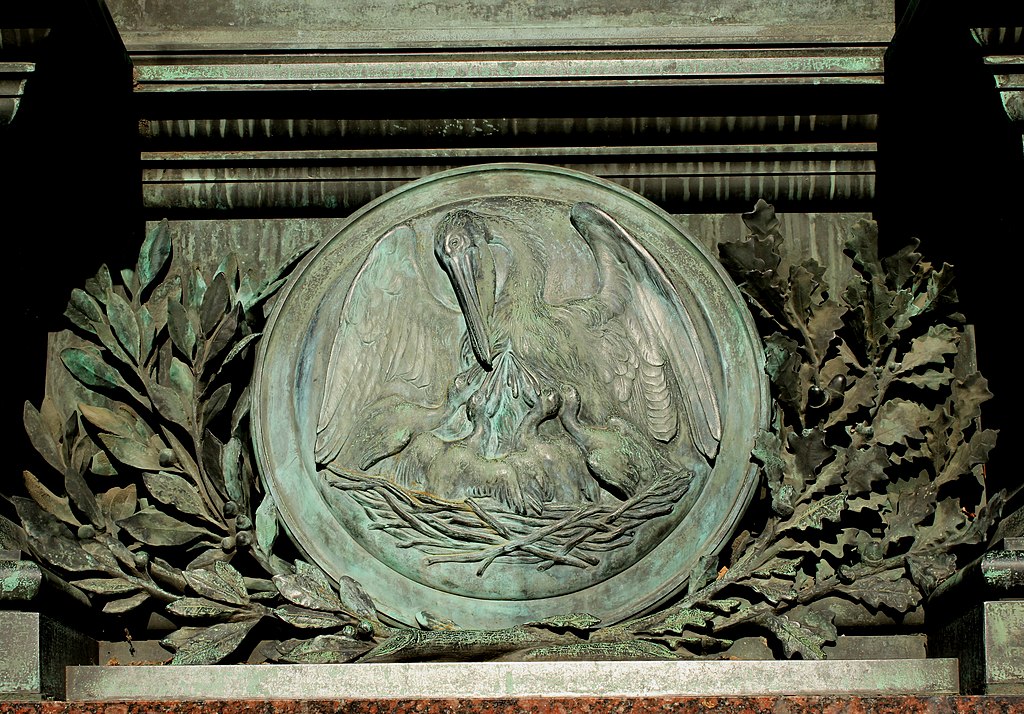
What happens when the space for youthful aspiration caves in? When circumstances are extreme, can solace still be found in a daydream, a creative thought beyond the everyday? And what role might contemplative words have in crisis?
Can patriotism be virtuous? Although philosophy has increasingly struggled to justify it on moral grounds in recent decades, patriotism remains a powerful source of self-identification and political participation.
Mitja Sardoč: Despite its centrality in the pantheon of political ideals, patriotism remains a contested concept that continues to divide its advocates and critics. What are the main points of disagreement?
Simon Keller: The biggest disagreement is about whether you can be a patriot while also accepting the basic moral equality of all humans, regardless of where they are from. To put it another way, the disagreement concerns the compatibility of patriotism with liberalism, or liberal morality, which states that all humans are morally equal and that the perspective of morality is fundamentally impartial. This is where most philosophers begin. What they say about it leads them towards different answers to the questions ‘What is patriotism?’ and ‘Is patriotism virtuous?’
Many broadly liberal theorists say that you can be a patriot while accepting the basic moral equality of all humans. They make distinctions between varieties of patriotism and then say that some of them are virtuous, or at least permissible.
I am thinking here of philosophers like Marcia Baron, Igor Primoratz, Kwame Anthony Appiah, and Stephen Nathanson. Jürgen Habermas might fit into this category too. They say that it is morally acceptable to be patriotic as long as patriotism is secondary to the commitment to universal human rights, or it is directed at improving the moral record of your country, or it includes a recognition that the patriotism of individuals from other countries is legitimate too.
Others argue that you cannot be a genuine patriot while also treating all humans as fundamentally equal. A genuine patriot takes the perspective of their own country, putting its projects and people first when it comes to at least some morally significant matters. Philosophers who take this view offer more substantive characterizations of patriotism (or of ‘true’, ‘genuine’, or ‘real’ patriotism) and are less likely to accept that it comes in different varieties. They might argue, for example, that if you are truly patriotic, then you identify with your country and its values and you are prepared to defend them, even at the cost of the vital interests of other countries and people – so you simply cannot be both patriotic and, at the deepest level, impartial.
These philosophers – I am one of them – see a conflict between patriotism and liberal morality. Some go on to say that patriotism is therefore a vice, others that we should reject liberal morality. Martha Nussbaum, for example, rejects patriotism because she thinks it cannot be reconciled with liberalism. Alasdair MacIntyre rejects liberalism because he thinks it cannot be reconciled with patriotism.
There are two other major sources of disagreement.
One is about the psychology of patriotism: how must you think of your country in order to be patriotic? George Kateb, myself and others think that to be a patriot you must imagine your country to be much more than it really is – more than any real country could ever be – and so patriotism involves an overestimation of one’s own country. Those who disagree describe in different ways what you love when you love a country patriotically, and why such love makes sense.
There is also disagreement about the relationship between patriotism and good citizenship. If you are a good citizen of your country, then you have a special concern for it. But is that necessarily a patriotic concern? Must a good citizen be a patriot? There is less writing on this question, or at least less argument; it is often taken for granted that the allegiance of a good citizen is the same as that of a patriot. But this is not obvious.
Which aspect of patriotism do you find most problematic?
The willful ignorance involved in considering one’s own country special. Countries are big and complicated, and their history contains some of the worst and some of the best of human possibilities. No one ever meets most of their compatriots. Yet to be a patriot you need to imagine your country to have a tangible character that defines its ‘real’ nature, makes it worthy of serious loyalty and sacrifice, and distinguishes it from other countries.
I think this active construction of the character of a country is responsible for most of the harms that flow from patriotism. It leads the patriot to hold false beliefs and resist evidence that would challenge the idealized picture of their country. It drives them to see compatriots who do not conform to that character as lesser citizens, and it tempts them to take on parochial and stereotypical views of people from other countries – to imagine that differences in human character coincide with national borders.
There is extensive literature on patriotism in disciplines as diverse as political science, sociology, cultural and memory studies, philosophy, history and psychology. What has been philosophy’s main contribution to the debate?
The moral evaluation of patriotism. The social sciences tend to treat patriotism as something that is simply there. Philosophy asks whether patriotism is just, what value it might have, and how it might advance or conflict with other values.
That has led philosophers to place patriotism in the context of various moral and political theories: liberalism, communitarianism, republicanism, Marxism, consequentialism, and so on. The debate about patriotism offers a test case for wider moral disagreements.
In evaluating patriotism from a moral point of view, philosophy has produced sharper descriptions of the concept. It is too easy to cast patriotism simply as love of country, loyalty to country, or identity with country. There are many different kinds of love, loyalty, and identity, all with different psychological demands and behavioural consequences.
Finally, in offering a moral perspective philosophers have articulated alternatives to patriotism. If we are not to be patriotic, must we instead be selfish individualists? Or rootless cosmopolitans? Appiah’s ‘cosmopolitan patriotism’ is a more nuanced alternative to patriotism, for instance. I talked about ‘worldly citizenship’, another alternative to both patriotism and rootless cosmopolitanism.
Which of the many ideas associated with patriotism – loyalty, unity, pride, allegiance, courage, solidarity, identity, virtue, citizenship, nationality, the ‘common good’, responsibility – do you find most underexplored?
In addition to citizenship, which I mentioned earlier, the notion of identity is underexplored and ripe for good new philosophical work. Many of us naturally identify ourselves through our connection with a country. That is how we introduce ourselves abroad, we expend our emotional energy when we watch the Olympics or the World Cup, and we observe international politics or think about art and culture.
It is tempting to take identification with a country as a given, but it is an active, perhaps deliberate process. It involves a picture of the country, a picture of oneself, and some conception of how they fit together. Identity, as expressed through patriotism, makes possible several emotions – pride, shame, guilt, vengeance, humiliation, and entitlement.
When and how did patriotism gain legitimacy as a philosophical concept worthy of theoretical investigation? And what progress has been made over the last decades?
Much of the credit goes to MacIntyre’s short 1984 lecture ‘Is Patriotism a Virtue?’ He did not convince many of his communitarian conclusions, but his argument is thoughtful and provocative; it shows that the notion of patriotism is more complicated than had previously been acknowledged and that it is closely connected with larger debates in political philosophy. It is the kind of paper everyone wants to respond to, and that is how the contemporary debate started.
Since then, it has made progress on several fronts. It has clarified communitarianism as an alternative to liberalism – to the detriment of communitarianism, I think – and identified the kinds of patriotic allegiance that an impartialist liberal can conceivably defend. It has also explained how patriotism differs from other forms of love and loyalty.

Vienna, Schillerplatz. Detail of the Schiller monument: a pelican as symbol for the allegory of patriotism/love for the home country. Author: Anna reg. Source: Wikimedia Commons.
On the whole, the direction of the debate in the last few decades suggests that the anti-patriots are winning. Those who defend patriotism are defending narrower, more nuanced versions of the concept, while dismissing its most everyday forms; or they are defending patriotism from within a self-consciously revisionary moral theory – saying that if we are to defend patriotism, we need to change our whole way of thinking about the fundamentals of morality.
Global political trends have also made the importance of the debate evident. Populist nationalism is on the rise. International organizations are getting weaker. None of this is good, but it makes it obvious that allegiance to country is not disappearing.
The willingness to kill or die for one’s country has been traditionally viewed as the most profound and genuine form of expressing patriotism. How do we make sense of this link between patriotism and violence?
On the one hand, when a country is at war, an appeal to patriotism is one of the most powerful ways to get people to kill and die for it. Also, arguably, a country only comes into being through its ability to defend itself militarily against outside threats – so perhaps true patriotic loyalty must come down to a willingness to defend one’s country on the battlefield.
On the other hand, everyone should be willing to die for something, and perhaps also to kill for something: for justice, for the things that matter, to defeat fascism, to save good from evil. The willingness to kill or die is not bad in itself, as long as it is for the right kind of thing.
I do not think that a country, as such, is worth killing or dying for. Partly for that reason, I argue that patriotism, if it must exist, should be ironic: you can engage in it if you like, but you should be able to turn it off and see it for what it is anytime things start getting serious. I would say the same about killing or dying for a Church or a football club.
So I believe the real problem here is not the close connection between patriotism and violence, but rather that between patriotism and the idolization of one’s country, which makes it seem more important than it really is – and hence among the things worth killing or dying for.
Patriotism has been criticized for its non-reflective and idealized view of the past, its exclusionary attitude in the present and its non-voluntaristic understanding of membership in a polity. Which of these or any other objections do you find most pressing?
Non-voluntaristic membership is something we must live with: we are born into a context, a family, a community with a history, and that leaves us with moral obligations, even though we had no choice about where to be born.
Patriotism does involve a non-reflective and idealized view of the past. To be patriotic, you need to imagine your country as worthy of love, and that means imagining it as, at its core, good. This can lead to interpreting or ignoring historical facts as needed.
This way of viewing the past creates two forms of exclusion. First, it excludes those from elsewhere, picturing them as people who do not share the country’s positive story. Second, it excludes people within the country who do not fit neatly into the story.
Lastly, I wonder whether patriotism can be morally corrupting, because it so often involves making excuses for, or at least overlooking, horrible crimes. We all know that our countries have done truly terrible things. If we are patriotic, I suppose we think those terrible crimes are outweighed by the good, or that they do not represent the country’s true nature, or that they are justified by the circumstances, and so the country is still worthy of love and pride. I suspect, then, that patriotic love might prime us to minimize horrible acts.
What are the most pressing challenges facing scholars working on issues related to patriotism?
The biggest challenge is to explain what it would mean to take a mature, informed, morally enlightened, clear-headed, constructive attitude towards one’s country in the contemporary world. Countries are important. It is within countries that we vote, make laws, form political cultures, establish welfare programs and educational systems, and so on.
Can one love one’s country without misrepresenting it? Should one have any emotional relationship with it at all, or see it merely as an administrative entity or an instrument?
I would like to get to a point at which we can think about these questions on their merits, rather than approaching them via labels like ‘patriotism’, ‘nationalism’, and ‘cosmopolitanism’. That is where we might come up with something new.
Published 17 February 2023
Original in English
First published by Dialogi (in Slovenian) / Eurozine (in English)
Contributed by Dialogi © Mitja Sardoč / Simon Keller / Dialogi / Eurozine
PDF/PRINTSubscribe to know what’s worth thinking about.

What happens when the space for youthful aspiration caves in? When circumstances are extreme, can solace still be found in a daydream, a creative thought beyond the everyday? And what role might contemplative words have in crisis?

For the second year, Ukraine’s collective consciousness is exhuming mass graves and burying children killed by Russian missiles. While just beyond Ukraine’s borders, the world of the transcendent reigns.